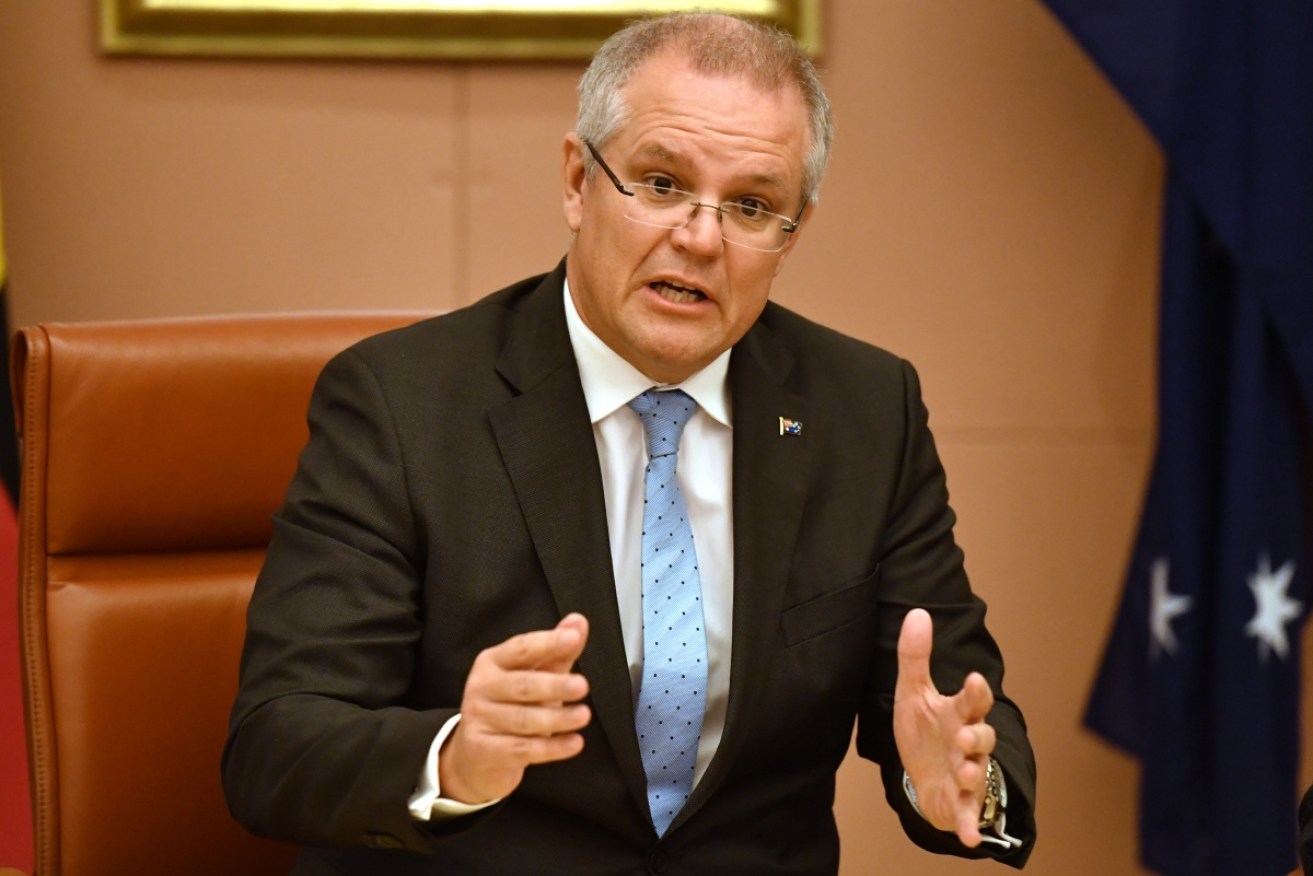Budget 2017: ScoMo discovers empathy just in time


Treasurer Scott Morrison orders the ACCC to monitor the big banks. Photo: AAP
Pre-budget leaks are a time-honoured tradition in Australian politics, but the Turnbull government has taken the annual budget theatrics into the realm of vaudevillian farce.
Whether it’s flying leaden policy kites – such as allowing first home buyers to dip onto their superannuation – to actual policy announcements such as the one-off payments to help pensioners with their energy costs, this is a flailing government in desperate search of a credible economic narrative to underpin Treasurer Scott Morrison’s second budget.
Prime Minister Malcolm Turnbull, battling persistently bad polls, rejects criticism he is a Prime Minister prone to policy thought bubbles or that his government lacks a coherent economic blueprint for Australia. Yet the lead-up to this year’s budget confirms exactly that.
A government that went to last year’s election on the vacuous mantra of “jobs and growth” and the unrelenting admonishment that Australia must learn to live within its means has suddenly hit on the budget theme of “fairness, opportunity and security”.
The urgent priority of “budget repair” has given way to the curious formula of “good debt, bad debt”, the precise meaning of which will presumably be revealed on Tuesday night.
The government continues to be haunted by the spectre of the disastrous 2014 budget delivered by then newbie treasurer Joe Hockey, who was widely judged to be out of his depth, both economically and politically.
This was amply confirmed by Mr Hockey’s second budget, which heralded a small business-led recovery based on nothing more than wishful thinking.
The Turnbull government’s stream of consciousness pre-budget manoeuvring owes more to hitting on a stance that distances the government – and Malcolm Turnbull himself – from that budget than creating an economic blueprint for Australia.
Mr Turnbull may consider his political survival to coincide with the best interests of Australia, but long-suffering taxpayers and the business community are entitled to see things differently.
This is a government incapable of long-term planning or consistent policy positions. Mr Morrison is about to deliver his second budget, yet it is only now that he has seen fit to take something approaching action on shaking up Australia’s financial system “to deliver better outcomes for consumers and small businesses”.
On the day before the budget Mr Morrison has asked the Productivity Commission to hold an inquiry into Australia’s financial system. The government, according to Mr Morrison, “is committed to ensuring that Australia’s financial system is competitive and innovative”.
One might reasonably ask, having baulked at Labor and community calls for a royal commission into the banking sector, what took the government so long to act on a Financial System Inquiry recommendation made almost two years ago.
Another Productivity Commission inquiry, announced earlier on April 30, will examine the vexed issue of the distribution of GST revenue, a longstanding gripe of state premiers, most notably former WA Premier Colin Barnett who was given short shrift on the issue during the recent election in which he lost power.
Mr Turnbull, who had earlier in his prime ministership raised GST reform as part of an overall reform of the tax system, later took it off the table when the political heat became too much to bear.
The Turnbull government has shown neither courage nor flair on the policy front, so can we really expect anything different in Mr Morrison’s second budget?
The rhetoric of compassion for battling households would do the Labor party proud.
“[W]hat people will see is that the government has a very clear understanding of the stresses that many Australian families are facing,” Mr Morrison told Laurie Oakes.
“We’re very aware of the pain that they have been feeling.”
Why it’s taken so long for the government to come to this realisation is well worth asking. While the Treasurer’s new-found empathy is welcome, budget night will prove the true test of his convictions.
Leo D’Angelo Fisher is a former associate editor and columnist with BRW and columnist for the Australian Financial Review. He was also a senior writer at The Bulletin magazine.







